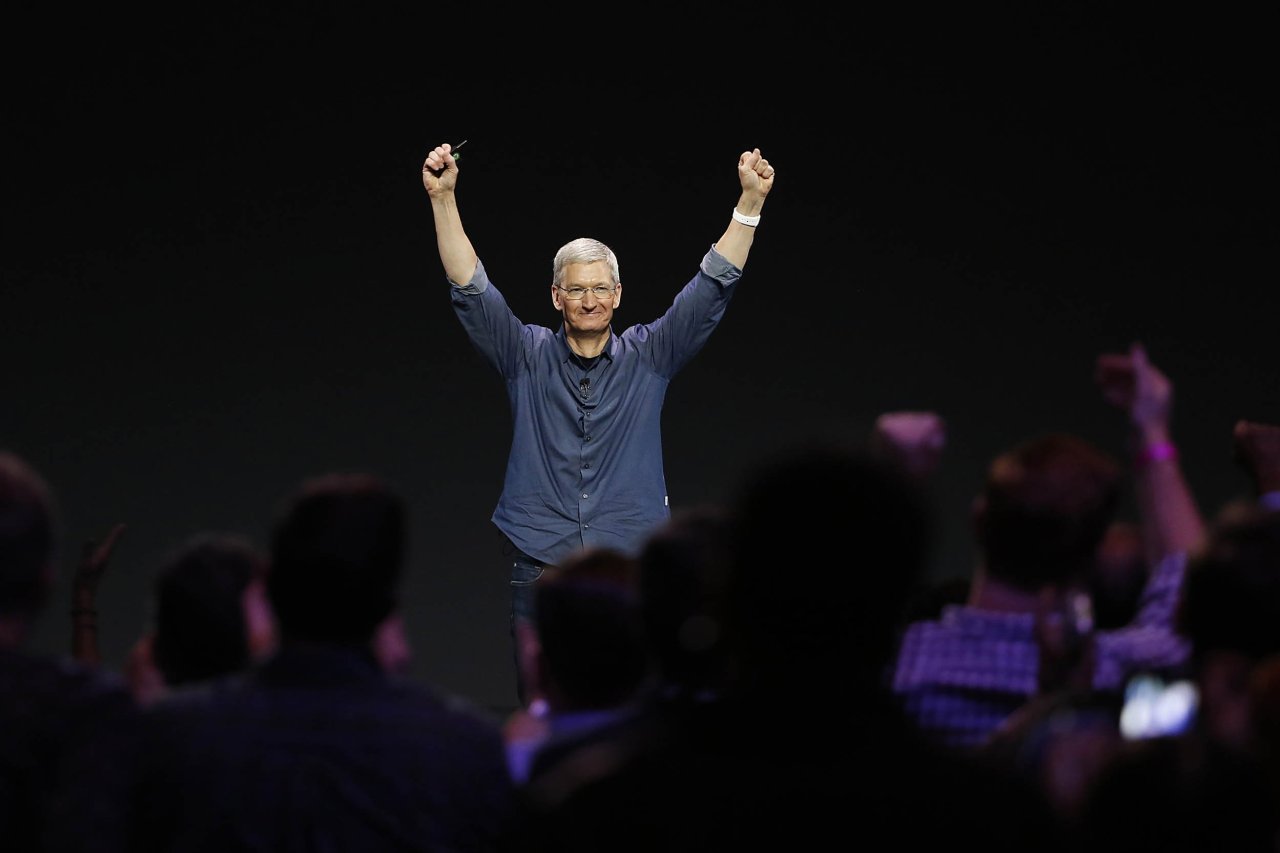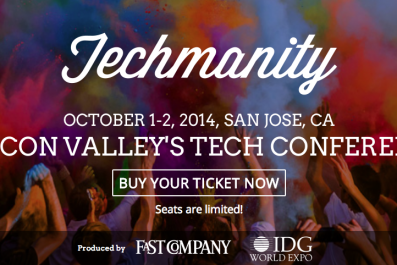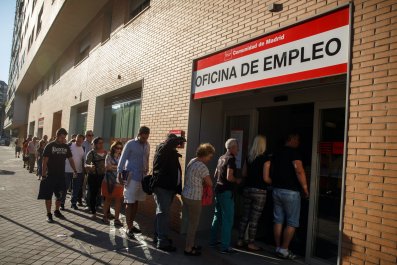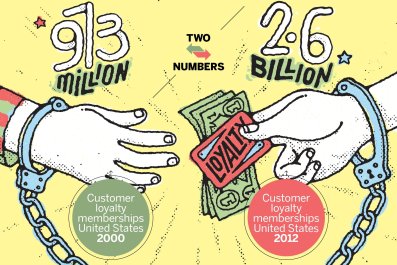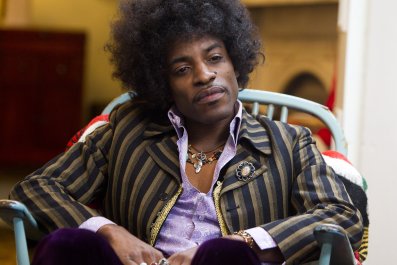As the iPhone 6 makes its way into the hands of eager consumers and Apple bathes in the afterglow of its Watch and Pay unveilings, Tim Cook looks as if he's doing OK running Steve Jobs's company.
And that's precisely Apple's big handicap. If Cook is to take Apple to crazy new heights, history says he needs to kick Jobs to the curb.
In the 75 years or so of the technology industry, just four dominating superpowers have transitioned from a legendary company builder to his handpicked successor: IBM, Microsoft, Intel and now Apple.
Two of those successions, at Microsoft and Intel, turned out to be significant bummers. The handoff at IBM in 1956 from Thomas Watson Sr. to his son, Thomas Watson Jr., succeeded almost beyond comprehension.
Now that Apple is bringing out its first products under Cook, its transition looks more like the two that sagged than the one that soared. If that holds true, Apple will soon run out of world-beating ideas and settle into a nice, comfortable old age making solid products that nobody gets all that excited about. You know, like Intel and Microsoft.
At their peaks, Microsoft and Intel dominated the technology industry, Microsoft in computer software and Intel in hardware. All other tech companies moved to their metronome. The two companies had been built and shaped by two of the most formidable CEOs of all time: Bill Gates at Microsoft and Andy Grove at Intel.
Grove stepped down in 1998. He handed the CEO job to his good friend, Intel veteran Craig Barrett. Intel was a speeding locomotive. Barrett saw his job as keeping Grove's company on the tracks. Which he did. But then technology changed, moving to the Internet and mobility, and because Intel stayed on that same track, it lost its chance to lead in a new age.
From 1998 to 2000, Barrett's first two years, Intel's stock soared. But those were the dot-com boom years. and almost all tech stocks soared. Just after 2000, Intel's share price crashed back to Earth and never recovered. While still a terrific business, Intel has not been an industry-dominating, pace-setting company since Grove left.
Gates handed Microsoft to his good friend Steve Ballmer in 2000. The year before, Microsoft was the most valuable company ever. Ballmer had no reason to reinvent Microsoft, so he didn't. And technology changed and Microsoft lost its leadership role. The stock dropped in 2000 and has bumped along at those lower levels until just recently, under a new CEO. Ballmer retired and bought a basketball team, which is probably fun but definitely not important.
Compare that with IBM. By the 1950s, Watson Sr. had basically created the computing industry, and IBM dwarfed all its competitors combined. Then Junior did far better. From 1956, when the younger Watson took over, to 1971 when he retired, IBM quadrupled its number of employees and increased revenue by more than nine times. In Watson Jr.'s final year as CEO, IBM was the hottest stock in the world, worth the combined value of 21 of the 30 stocks that made up the Dow Jones industrial average.
What was the difference between this handover and the other two? Watson Jr. couldn't wait to tear IBM away from his father and make it his own. (Like any nice rebellious son, no?)
Here is an image that captures the jarring transformation, from my biography of Watson Sr. It's what he saw when leaving IBM on his last day: "On [Watson Jr.'s] orders, workers had ripped up the oriental rugs and dark wood that had been in the lobby since the 1930s, and installed a modern decor that included bright white floors, crimson walls, metallic desks, and a sleek, simple '702' on the wall above the computer housing." The son didn't even wait for his father to get out of the building.
As Watson Jr. took over, the industry was going through a major technology shift, like what happened to Barrett and Ballmer. Computers until then had been built using slow, clunky electromagnetic switches. IBM perfected those machines. The 1950s ushered in electronic computers, constructed from vacuum tubes and transistors. Instead of running his father's business, Watson Jr. used the technology shift to rip IBM out of its old business and focus entirely on leading the new era.
So where does Cook land on this succession spectrum? Well, the day of Apple's big product announcement, he talked to ABC News about Jobs: "There's not a day that goes by that I don't think of him. This morning, being here, I especially thought about him, and I think he would be incredibly proud to see the company that he left us." Cook even tried to imitate Jobs's way of introducing new products onstage.
Cook reveres Jobs, and rightly so. But Cook is 100 percent certain to fail at being Steve Jobs. Cook can only be Cook. The stories of IBM, Intel and Microsoft suggest that Cook needs to make Apple believe the Jobs era is over, and the Tim Cook Apple is being born. Of course, that won't be easy, since everyone at Apple reveres Jobs.
The potentially good news for Cook is that there is a technology shift under way. We're moving to an era of the cloud and the ubiquitous Internet of Everything. Jobs's Apple was great at making beautiful machines that ran seamless software. Those things will matter less and less as we increasingly use all sorts of less-powerful gadgets to connect to software and services through the cloud.
There are signs that Cook is on this. The Apple Watch is a nod to the Internet of Everything, and Apple's acquisition of the Beats music service plays to the cloud. But those are baby steps compared with the rest of Apple's booming business.
So watch to see if Cook uses this tech shift to wrench Apple away from its Jobsian achievements and set a new course—probably one Jobs wouldn't have understood, like a move toward small connected devices and away from iPads and laptops.
As IBM showed 60 years ago, the best time to make a drastic change is when you're on top, not, as Microsoft and Intel found, when you're sliding off your perch. It's also the hardest time for a CEO to justify such a shift to employees and shareholders, or even himself.



